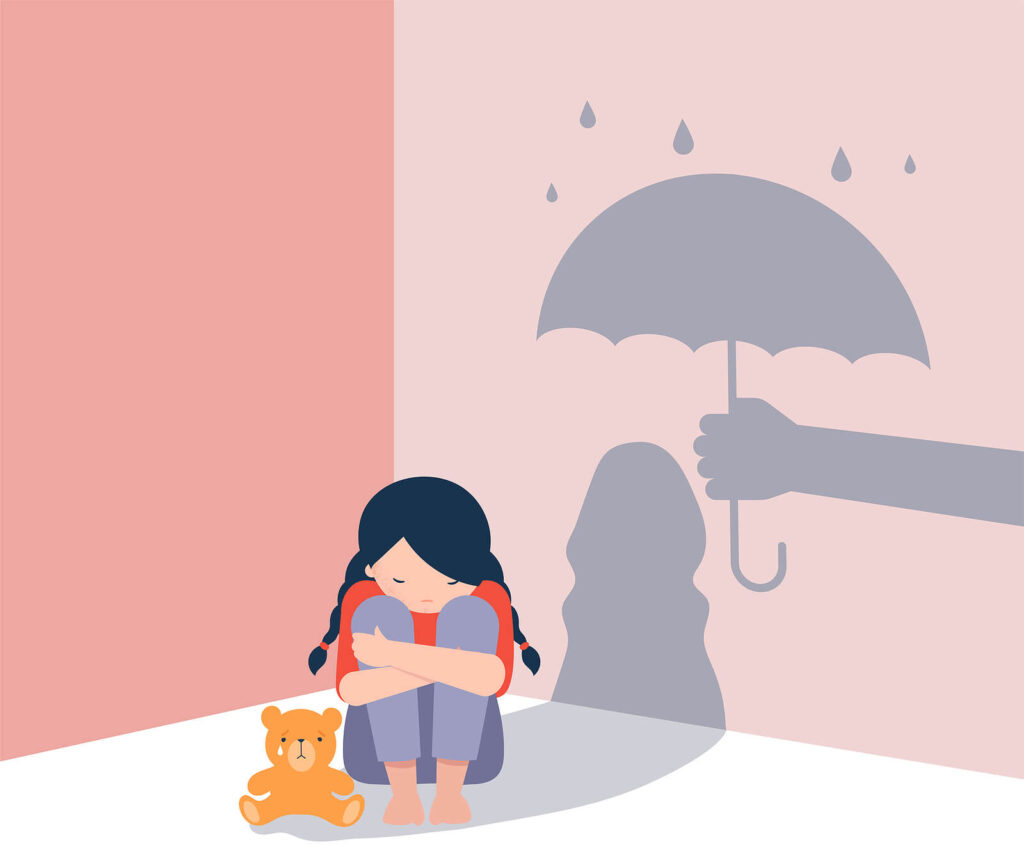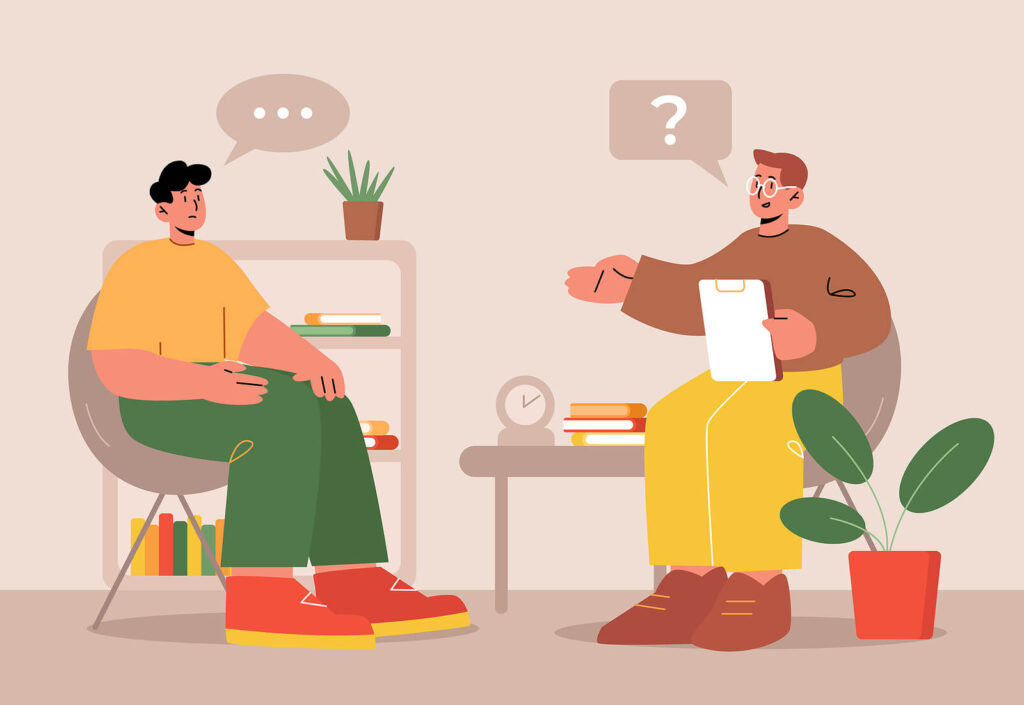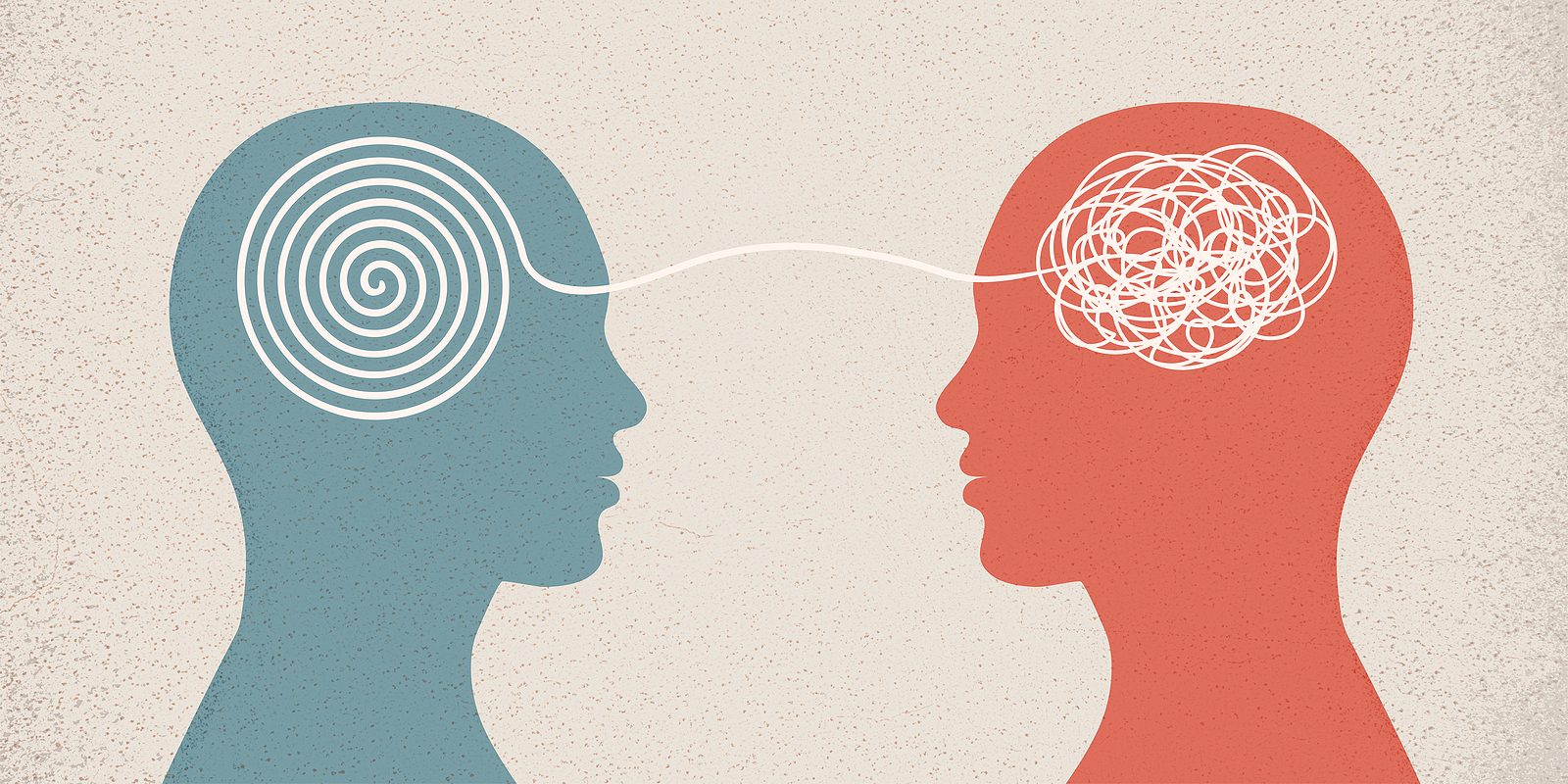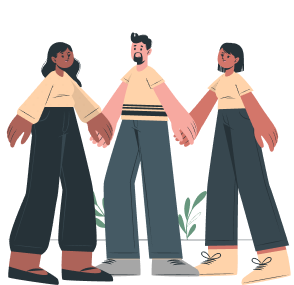As many know, attachment styles are a key component in understanding and breaking dysfunctional relationship patterns. Attachment styles develop in childhood based on our relationship with our caregivers. In adulthood, they serve as the foundation for how one behaves, communicates, and handles conflict in relationships. Attachment styles are divided into two categories: secure and insecure. Secure attachments are a result of positive, consistent interactions with caregivers. On the other hand, insecure attachments are often a result of misattuned parenting, trauma, and abuse.

There are three types of insecure attachment styles:
- Anxious or Anxious-Preoccupied
- Avoidant or Avoidant-Dismissive
- Disorganized or Fearful-Avoidant
Disorganized attachment is probably the least talked about of the three insecure attachment styles. It is a combination of the anxious attachment and avoidant attachment style. Individuals with this attachment style experience both high anxiety and high avoidance in relationships.
How does disorganized attachment develop?
A disorganized attachment in children can develop in two ways. One way is if the primary caregiver is inconsistent and unpredictable. The caregiver is sometimes nurturing and emotionally supportive and other times neglectful and emotionally distant. This type of inconsistent behavior makes it difficult for the child to know what kind of response they will receive from the caregiver. Secondly, a disorganized attachment could develop if the child is traumatized or abused by the primary caregiver. This can be direct experiences such as physical or sexual abuse or indirect experiences such as witnessing the abuse of others.

In both situations, the child learns that their caregiver – the person responsible for meeting their needs and keeping them safe – is a source of fear. The child’s impulse may tell them to seek comfort from their caregiver, but the caregiver frightens them. This experience is disorienting for the child, and they are never truly able to form a secure bond with their caregiver. These children oscillate between an innate drive for love, connection, and belonging and a need to survive and protect themselves. Children with a disorganized attachment long for their parents but distance themselves when they get close.
How to recognize a disorganized attachment style
Someone who developed a disorganized attachment as a child will experience high anxiety and high avoidance in relationships. Therefore, they may struggle with establishing and maintaining strong bonds because of their difficulty being vulnerable with and trusting others. Their anxiety may appear as clingy, assurance-seeking behavior while their avoidance may appear as distancing, rejecting behavior. Other characteristics of a disorganized attachment style include:
- Fear of rejection
- Fear of abandonment
- Hypersensitivity to real or perceived abandonment
- Poor emotional regulation, i.e., extreme emotional reactions
- Unstable, chaotic relationships
- Low self-esteem and negative self-worth
- Black-or-white, polarizing thinking
- Difficulty managing stressful situations
- Alternating between emotional intimacy and emotional distance
How does a disorganized attachment style affect adult relationships?
Adults with a disorganized attachment style often appear to have a push-pull dynamic in relationships. They have a desire to be loved and crave intimacy but are fearful of letting anyone get close to them. Their relationship with their caregivers has taught them that the people you let in can hurt you. Adults with this attachment style expect disappointment and rejection in relationships. To avoid getting hurt, they unconsciously behave in ways that push others away. These individuals are hypersensitive to situations of real or perceived rejection and/or abandonment. Any situation where they feel their partner is ignoring them, being distant, or acting suspicious will be dysregulating. Their anxiety may drive them to push the other person away first or make frantic efforts to prevent them from leaving.
Adults with a disorganized attachment style struggle to trust others. In relationships, they may question their partner’s motives or maintain a belief that they’ve been treated unfairly. Furthermore, these types of behaviors can make having stable, long-lasting relationships extremely challenging and ultimately lead to a self-fulfilling cycle.
How to heal from disorganized attachment
Like with any other insecure attachment style, individuals can heal from a disorganized attachment. For an individual with a disorganized attachment style to move towards a more secure attachment, it is important for them to process their past traumas. Specifically, this can be done with the help of a counseling professional.

Trauma-focused therapy works to help individuals understand the impact of traumatic experiences on their functioning. It can teach you how to identify triggers, provide a safe space to process emotions, and help you develop healthy coping skills to deal with distressing situations. By doing trauma work, individuals with disorganized attachment can build emotional resilience and become better able to form secure, intimate bonds. Additionally, the therapeutic relationship at Kind Mind Psychology serves as a model of a healthy relationship where one can be open, build trust, and resolve attachment issues. Reach out to us today to get started with a trauma therapist in Charlotte, NC, or New York.
Start Your Healing Journey Today with Trauma Treatment in Charlotte, NC
If you’re struggling with the impact of disorganized attachment and its effects on your relationships, you’re not alone. Therefore, at Kind Mind Psychology, we offer a compassionate, trauma-focused approach to help you understand and heal from past wounds. Our skilled therapists are here to guide you in building trust, emotional resilience, and healthier connections. Take the first step toward secure relationships:
- Reach out today to schedule a session.
- Explore more about trauma by reading our blogs.
- Start your journey toward healing and growth. You deserve a safe space to heal, learn, and thrive!
Other Services We Offer in New York and North Carolina
Beyond trauma treatment in Charlotte, NC, we offer a variety of supportive options to meet your needs. For those in the LGBTQIA+ community, we offer affirming and compassionate LGBTQ+ therapy, where you can explore and embrace your identity. We also provide couples therapy and sex therapy to help partners build stronger, more meaningful relationships. No matter what you’re facing, we’re here to support your growth and well-being with CBT, DBT, or online therapy.

